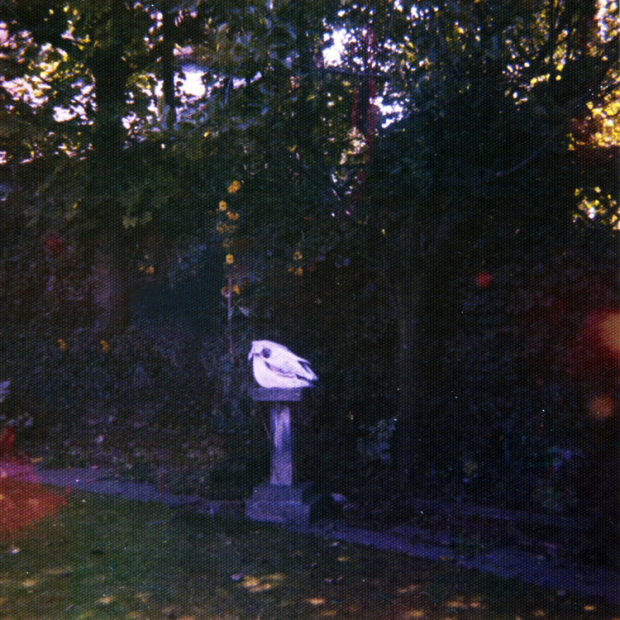You could be forgiven for thinking that any and all modern articulations of “rock music” have become politically toothless. As a medium, it doesn’t quite seem as suited to critiques of society and culture as it once did. That being said, it seems Detroit four-piece Protomartyr would be inclined to disagree. Relatives In Descent, their fourth album, finds them wrestling with the nature and form of truth, spurred on by the vertiginous, collective sense of History swarming violently around the present. Having recently signed to UK Label Domino, the band retreated to L.A. in March of this year to record with Sonny DiPerri (of Animal Collective and Dirty Projectors fame). By co-producing the album, he helped shape their idea of making something just as zealous as their previous efforts, but with a little more depth. This record finds vocalist Joe Casey, guitarist Greg Ahee, drummer Alex Leonard and bassist Scott Davidson staring contemporaneity square in the face, holding its uncomfortable gaze for 44 brash minutes. They’ve once again turned the indistinct blueprint of post-punk into something gnarled and brooding – like Joy Division looking outward, or The National without those scotch-sipping divorcées regarding the Manhattan skyline.
The opener, ‘A Private Understanding’, begins with a literal drum roll – though it’s anticipatory in the way a dull growl precedes an oncoming storm. The track slowly simmers with anxiety and apocalypse, conjuring a “paradise for fools” soundtracked by “vile trumpets”. Casey closes with the pleading refrain of “She’s just trying to reach you”, as slender guitars fluctuate in the background, as though Sonic Youth’s Sister were playing in the charged air before a riot. On ‘My Children’, an ominous march morphs into a vigorous step – as arachnid guitars crawl on the fringes. Casey, who is himself childless, muses on the kids to come – “Good luck with the mess I left, you innovators”. The track eschews temporality, though, simultaneously cognisant of both the future and the forgotten generations awaiting their restitution. ‘Up The Tower’ uses a jittery guitar/rhythm sequence to mirror a rising pulse, amid images of masses rising up to “defenestrate* the king” and “thunder up the stairwell until they reach that golden door”.
* Always worth pausing briefly to admire any usage of ‘defenestrate’, an almost psychotically specific word.
The group cast a documentarian eye on the world around them, while still retaining a certain cryptic mien. Casey’s vocals are frequently more declarative than melodic, giving the listener the sense of being addressed. ‘Male Plague’ is an explosive, anti-patriarchal banger (“sad sacks pickled in jars”), while the ghost of Robert Hayden haunts the oneiric ‘Night Blooming Cereus’. With the blistering instrumentation of ‘Caitriona’ or the hypnotic riffwork of ‘Windsor Hum’, the band apprehend their anarchic spirit and channel it, almost reaching into the past to salute The Raincoats, walls of that old squat quaking with the sound of the future. The pointed shudder of ‘The Chuckler’ finds Casey declaring “I guess I’ll keep on chuckling, till there’s no more breath in my lungs”. This is the Beckettian hollow laugh, the risus purus, more miniature existential event than bodily reaction. He intones “I wish there was a better ending to this joke”; nothing to be done.
The pummeling ‘Don’t Go To Anacita’ finds Casey inventing a fictional town so as to erect a target for his vitriolic screed against bourgeois solipsism. ‘Here Is The Thing’ is reminiscent of the ragged amble of The Fall in their prime, with Casey even occasionally reaching for direct mimesis of Mark E. Smith’s shambolic cadence. Casey noted in a recent interview that the titular “Thing” is “unfettered capitalism at the expense of humanity”. It’s sort of an apt characterisation – something we can name, but only partially grasp. In his seminal 2009 pamphlet Capitalist Realism, the British writer Mark Fisher compares capitalism to the creature from John Carpenter’s The Thing – “a monstrous, infinitely plastic entity, capable of metabolising and absorbing anything with which it comes into contact”. The group’s anger is understandable – their home city of Detroit has been trampled over in recent years, with a handful of billionaires presiding over a functional oligarchy. Throughout the record there’s the creeping knowledge that the true power and enemy is Capital – vampiric, amorphous and uncompromising.
The album’s closer, ‘Half Sister’, finds Casey returning to his preoccupation with the phenomenology of truth through images of “a backlog of so-called prophets” and “babbling prisoners”. The record never deals in specifics, but doesn’t need to. The current state of things speak of their own accord. Casey & co. never mention the marigold creep by name (though you could read the “trumpets” as an allusion, if you wanted), because they don’t have to. The Western body-politic’s squealing chestburster is already everywhere, always-already present. They know directly satirising him doesn’t work, that late-night comedic impressions are idiotic. It’s senseless to weaponise parodic simulacra against a beast that thrives on hyperreality. True protest art of the contemporary moment needs to look outside, and beyond. At the album’s close, Casey comes full circle and returns to the refrain “she’s just trying to reach you”, only now his voice is different – adamant but exhausted. Badiou teaches us that the inherent difficulty of real change lies in the attempted synthesis between the emancipatory potential that resides in the Idea, and the requisite mobilisation it needs for its actualisation. That harmony of the “private understanding” and its nascent realisation – it’s trying to reach you. Eoin Lynskey







